- Research
- Research Centers
- Journals
- Admission
- Introduction
- Programs
- Application
- Alumni & Giving
- Alumni Club
- Giving
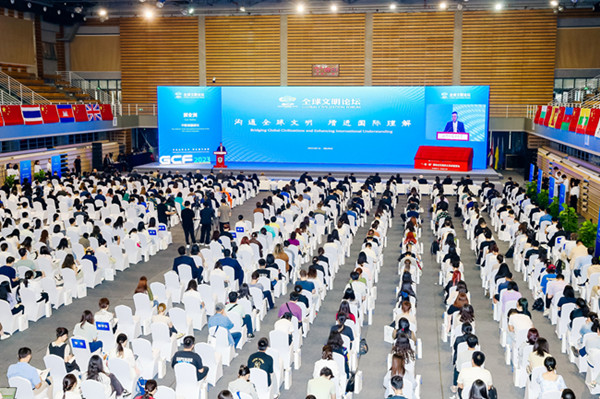
BFSU holds the Global Civilization Forum in Beijing on Sept 16. [Photo/bfsu.edu.cn]
The Global Civilization Forum, hosted by Beijing Foreign Studies University (BFSU), opened in Beijing on Sept 16. The forum, themed "Bridging Global Civilizations and Enhancing International Understanding", aimed to promote exchanges and mutual learning among diverse civilizations, implement the Global Civilization Initiative and advance the construction of a community with a shared future for mankind.
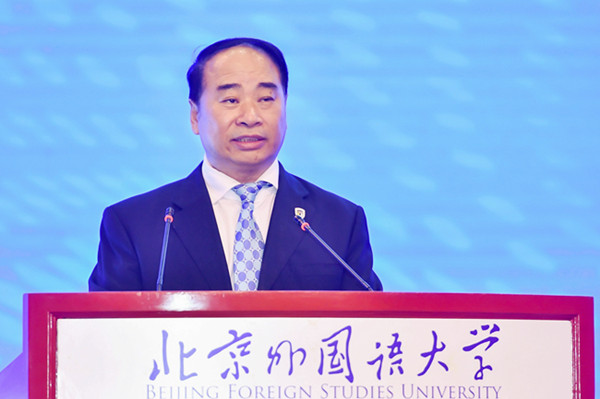
Wang Dinghua, secretary of the CPC BFSU committee, addresses the Global Civilization Forum. [Photo/bfsu.edu.cn]
Addressing the forum, Wang Dinghua, secretary of the CPC BFSU committee, noted that universities should actively shoulder the mission of promoting global civilizations.
The Global Civilization Forum serves as a platform to facilitate exchanges among diverse civilizations. It aims to enhance friendship between China and foreign countries, and build a community with a shared future for mankind, Wang said.
He also stressed the importance of dialogue in improving international understanding and tightening people-to-people bonds, as well as the crucial role of world civilization studies and international language proficiency.
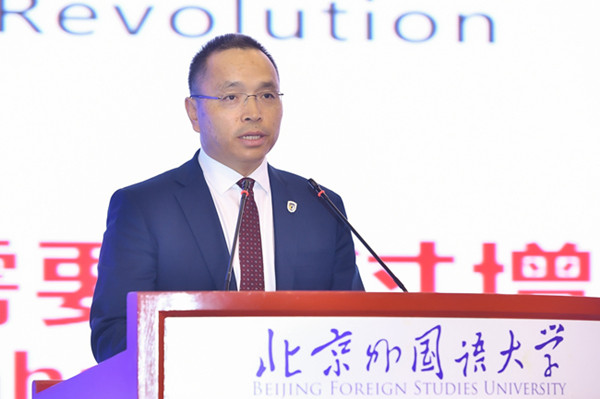
Yang Dan, deputy secretary of the CPC BFSU committee and president of the university, delivers a keynote speech at the Global Civilization Forum. [Photo/bfsu.edu.cn]
In his keynote speech, Yang Dan, deputy secretary of the CPC BFSU committee and president of the university, said that diversity is the fundamental characteristic of global civilization. It necessitates exchanges and mutual learning to achieve international understanding. International understanding promotes cultural exchanges, as well as the coexistence, communication, inheritance and innovation of civilizations.
Global civilization exchanges call for new ideas underlining equality and inclusiveness. In this process, universities should shoulder their responsibility of fostering and advancing global youth development, Yang said.
He also highlighted the key role played by languages and technical advancement in the great cause of global civilization exchanges and mutual learning.
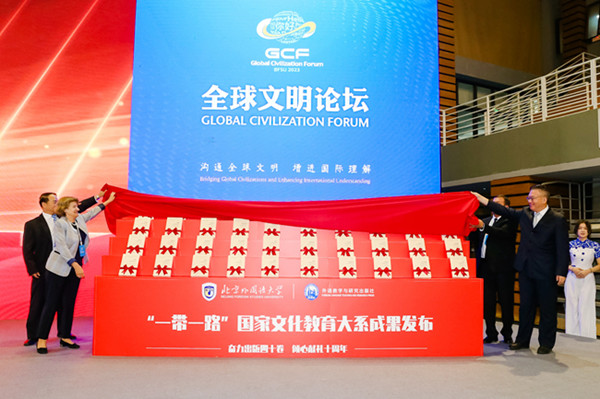
Officials unveil the book series The Belt and Road Countries: Culture and Education at the forum. [Photo/bfsu.edu.cn]
The forum unveiled the book series The Belt and Road Countries: Culture and Education, a monumental work of 40 volumes. It is a gift to commemorate the 10th anniversary of the BRI and provides comprehensive insights into the education domain of countries involved in the initiative, offering valuable references for China's educational development and international cooperation.
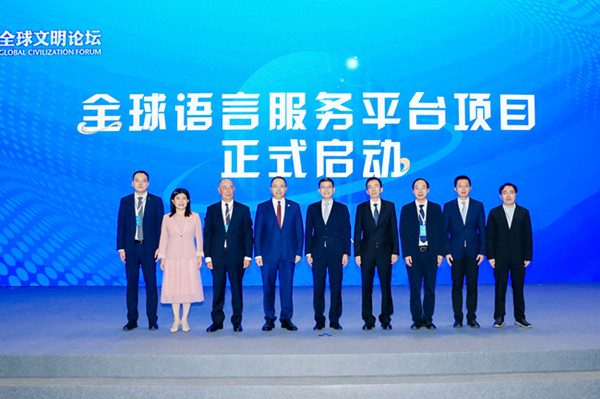
BFSU launches the Global Language Service Platform at the Global Civilization Forum. [Photo/bfsu.edu.cn]
BFSU also launched the Global Language Service Platform, which aims to enhance the matching of supply and demand in language services. By offering professional, precise and intelligent services, it seeks to create a language service ecosystem that pools the collaborative efforts of the nation, enterprises, higher education institutions and society.
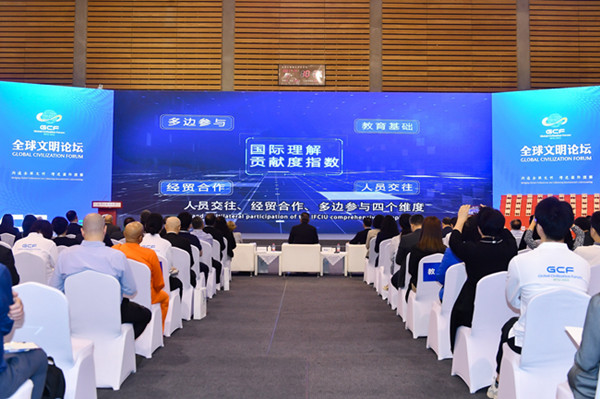
BFSU releases the Index of Factors Contributing to International Understanding at the Global Civilization Forum. [Photo/bfsu.edu.cn]
Additionally, the university released the Index of Factors Contributing to International Understanding, a pioneering initiative based on research into 195 countries, utilizing data from authoritative organizations and institutions such as the United Nations and its affiliated agencies, the World Bank and others.
The Global Civilization Forum featured sub-forums focusing on such themes as a community with a shared future: challenges and prospects, languages and civilizations, international communication and cross-cultural understanding, educational equity and the world's future, the 10th anniversary of the BRI and RCEP educational cooperation, global civilizations and responsibilities of the younger generation, as well as poverty eradication, sustainable development and new forms of human civilization.
Government and NGO officials, renowned experts, scholars and university leaders, as well as representatives from government departments, universities, research institutes and media outlets attended the forum.
The event was broadcast online, with members of the Consortium for Country and Area Studies from 181 countries and member universities of the Global Alliance of Foreign Studies Universities participating remotely.